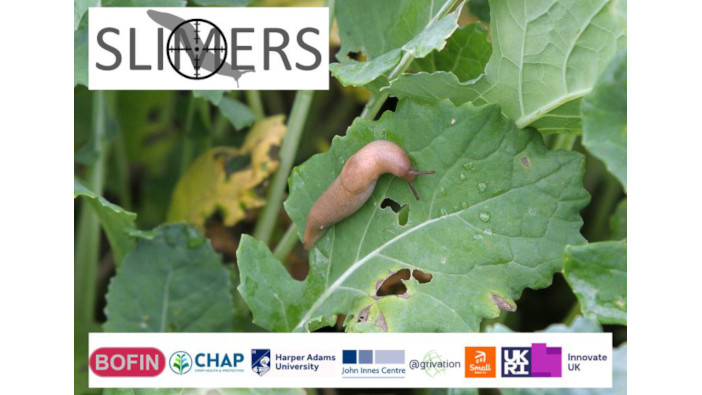The latest update from the British On-Farm Innovation Network (BOFIN) saw the launch of SLIMERS (Strategies Leading to Improved Management and Enhanced Resilience against slugs) with the organisation sharing how the project aimed at developing approaches to slug control is progressing.
The aim of the project is to develop cost-effective, autonomous slug monitoring, forecasting and precision treatment tools to address the pest issue. It builds on previous work and combines expertise across the consortium to develop the knowledge and understanding to control slugs more sustainably, reducing reliance on slug pellet usage and advancing alternative biological control.
BOFIN is recruiting 30 ‘Slug Sleuth’s who will be paid to carry out on-farm trials to develop the technologies. These farmer members will also be paid to lead communication and dissemination activity to encourage adoption of the commercial services. The organisation will also develop a ‘Slug Circle’ knowledge cluster around this project, made up of those with a special interest, including scientists and members of the public who have opted in, allowing them to share experiences and knowledge to help shape the project. BOFIN hope that this will reach a total membership of at least 300.
Dr Jenna Ross of Crop Health & Protection (CHAP) is technical lead on the project and she explained how the Slugbot – an autonomous monitoring and treatment system – helped to set the foundations for the project (more information can be found here). She detailed outputs for the three-year Slimers project which includes digital slug monitoring, forecasting and precision tools delivered as an end-to-end service model; field data on factors influencing slug behaviour, distribution, surface activity, feeding, biology and species diversity; farmer feedback and market research, and dissemination events. This is planned to take place across three work packages over the project period.
Professor Keith Walters is supporting the project and explained that the trial design involved 4 main steps:
1. Field/crop and input details from ‘Slug Sleuths’. Provided once before the beginning of the experiment.
2. Layout the trial plot (10mx10m between traps)
3. Count the number of slugs under each trap on 5 occasions (Weekly intervals after 50% emergence of the crop, optional: >3 counts at monthly intervals thereafter.)
4. Take a single set of soil samples and send in for lab analysis.
He explained that the work for the so-called ‘Slug Sleuths’ within this project is manageable for participants. He said: “We are asking the ‘Slug Sleuths’ to record field and input details, count and record five weekly assessments and take photos and some trap locations. There are 51 species of slug in the country at the moment. We are interested in the grey field slugs under each trap and the total number of other slug species under each trap.”
Tom Allen-Stevens, founder of BOFIN, explained that there are benefits available to those who take part in the project. There are three roles available within the team – trial hosts, trial monitors and project ambassadors. Payments are available for the work completed and support will be provided during the project.
The project is led by BOFIN, partnered with CHAP, AGRIVATION, Harper Adams University, John Innes Centre and Small Robot Company. It is funded by Defra Farming Innovation Programme, delivered by Innovate UK.



